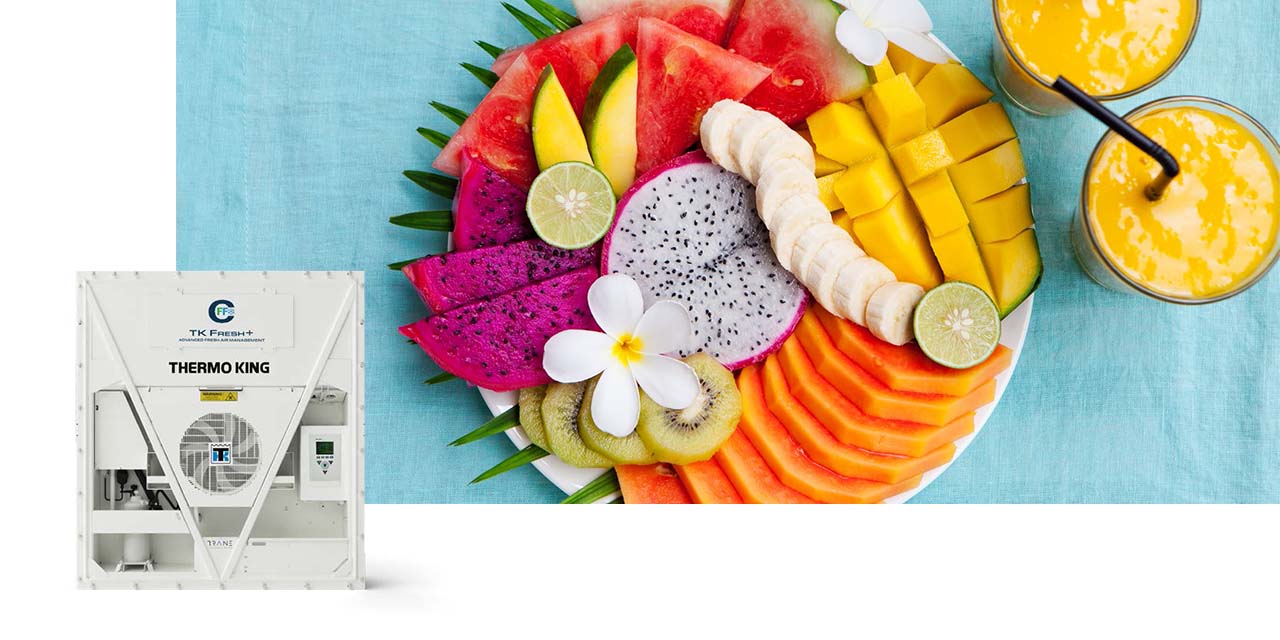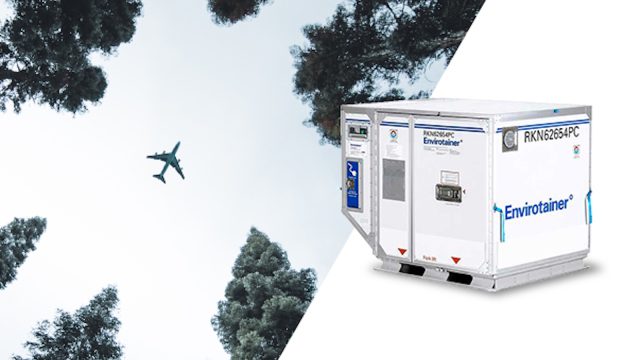(Don’t) let it breathe: regulating fresh air circulation in produce transport
The challenges of transporting fresh produce
After the harvest, the fruit or vegetable no longer has the support of the plant to replenish the energy it uses to keep its cells alive. Therefore, it turns towards the stores of energy it has saved up. The carbohydrates, composed of starch and sugar. With the help of oxygen taken in from the air around it, the fruit breaks down these stores of sugar to keep its cells healthy – what we call ‘ripening’.

Unfortunately, this process has significant downsides for your profits. If the crop is allowed to continuously ‘respirate’, it will lose more and more of its sugar content and in turn, lose more and more of its flavour. As this process continues, it releases carbon dioxide and energy in the form of heat. This heat in turn warms up the fruits and vegetables, which speeds up the respiration process. All this results in a vicious cycle. Its destination? Lower quality and higher food waste.Once the sugars run out, the crop is no longer able to keep its cells healthy and decay sets in. Once crisp and firm, the fruit or vegetable turns soft and squishy and tastes bland.
| Effects of respirationLoss of flavourRotting and decay |
And in turn, spoils your cargo and costs you money.
So what to do about it?
The good news is that this process can be slowed down significantly. One method is temperature control as low temperature slows biological activity. But the most important way of preventing respiration is a combination of temperature, humidity and fresh air control. Since fruits and vegetables need oxygen to break down the carbohydrates they stored, if we deprive them of oxygen, they can’t respirate as efficiently. However, simply depriving them of oxygen isn’t the way either, as then high concentrations of carbon dioxide (CO2) can gather around the produce and lead to flavour decay, internal breakdown and a failure to ripen entirely. In other words, maintaining ideal conditions for the transport of fresh produce is a delicate balance. This is where TK FRESH+ comes in!
TK FRESH + is a fresh air exchange unit that automates the air regulation in your container. A microprocessor precisely controls the rate of fresh air exchange, evaluating the conditions inside the container and adjusting them accordingly. This gives the container much faster pulldown, but importantly, by precisely controlling the O2 and CO2and scrubbingethylene from the air, we can prevent or in certain cases entirely suppress the effects of respiration. That way, your fresh cargo remains crisp and firm, protecting its value.
Before TK FRESH+, regulating the fresh air exchange inside your transport container involved a certain degree of guesswork. But now, the microprocessor will take care of all of that for you, giving you not only high-quality cargo but also peace of mind.
An encyclopaedia in your pocket
As a final helping hand, there is the TK Fresh app. No two crops are the same, oranges need different conditions than blueberries or pineapples. Even within the same fruit variety, optimum conditions can vary slightly. Braeburns need slightly more O2 and CO2 than Golden Delicious apples for example. With the TK Fresh app in your pocket, you’ll always be able to program your TK FRESH+ unit to the ideal conditions for your cargo.
Florent Philippot from ZGROUP shares how his organisation has protected their cargo with TK FRESH+’s automated air management:
We at ZGROUP use TK FRESH+ (previous known as AFAM+) with success for Ripening Room and Degreening Room but also for Controlled Atmosphere storage in order to prolong shelf life of high respirating produce like avocados or mangoes.
Using ZGROUP’s knowledge of Postharvest treatments together with Thermo King Marine teams’ extensive knowledge about refrigeration and controlled atmosphere solutions we avoid food loss and spoilage and create new applications of Thermo King Unit.
These fruit and vegetables not only need best-in-class temperature and humidity management, that´s provided by Magnum Plus and CFF models, but also TK FRESH+ O2 and CO2 management, a key element for Controlled Atmosphere process. Ethylene level is a key element for the Controlled Atmosphere process, we can remove the excess of ethylene with scrubbers or add it; all these applications are supported in Thermo King units.
Want to protect your valuable cargo? Learn more about TK FRESH+ here.
Other relevant articles that might interest you

Marine
Knowledge is power: telematics on the seven seas, on rail and on the road.
In general, a modern cargo ship carries 15,000 containers. Up to 10% of those are reefer containers. How …

Air
Four pharma trends that impact the air freight cold chain.
Cold chain by air is on the rise – especially in the area of high-valuable pharmaceuticals, which …

